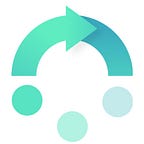Carousel and Springboard: A perfect match!
Great technology cannot replace great pedagogy. However smart or intelligent the technology you put in front of students, without an expert teacher nurturing, communicating, transmitting, guiding and supporting them, students won’t learn.
Similarly, great resources cannot replace great pedagogy. You can have the best textbook, the best PowerPoints, the best booklets or worksheets, but without an expert teacher…students won’t learn.
That’s not to say great technology and great resources don’t help. They can’t replace great pedagogy, but they can facilitate it. When it comes to tech for example, Carousel’s feedback function allows teachers to rapidly assimilate student responses and adapt their teaching to counter and explore student misconceptions. C-Scores allow teachers to track and monitor student retrieval and progression through the curriculum in a way that they could never do manually. It’s not just Carousel though, technologies like OneNote, Visualisers — even mini-whiteboards — facilitate great pedagogy.
Theoretically, great resources should be able to do the same. A great textbook should be able to boost teacher knowledge, allowing them not only to understand the content better, but also to deliver it in a way that is interesting and relevant. A great worksheet should provide enough practice for students to be able to think hard and engage in crucial cognitive activities like spaced retrieval and interleaved practice.
A truly great resource would carefully balance the need for teachers to plan their own lessons with the need to support them to do so: giving teachers a blank sheet of paper and telling them to get on with it is not good for their pedagogy or their workload. But equally, giving them a scripted lesson plan or set of slides and disincentivising deviation or adaptation is not good for their pedagogy or dignity as a professional. So a great resource would meet these two poles somewhere in the middle, and facilitate teachers to plan lessons that are tailored to the class, but with just the right amount of guidance and support.
Unfortunately, resources like this are few and far between — at least when it comes to science. All too often resources are poorly sequenced, not closely tied to the curriculum, lacking in independent practice or suffering from “doublespreaditis” — the publisher’s odd compulsion to have every topic fit neatly onto a textbook double-spread.
Even where these issues are not found, how many resources can claim to support teachers through the misconceptions they are likely to encounter? How many resources give teachers guidance and ideas about how to explain their subject? How many resources provide examples of questions teachers could ask to check the understanding of their class? How many resources provide notes on student answers to independent practice, rather than just answers?
Being honest, how many resources are really just a set of slides and worksheets for teachers to punch their way through, in a way that feels robotic, dry and unresponsive? Not many.
Until now. Springboard Science is revolutionary in that it meets all of these challenges, and is a resource directly targeted at facilitating great science teaching. It works in a way that acknowledges teacher professionalism whilst giving guidance and support to lower their workload and think about the aspects of great teaching that really matter.
Springboard Science enables teachers to use an evidence based cycle of:
- Prerequisite knowledge check — what do students need to know before you start your explanation? What questions can you ask to check that they are ready for your explanation?
- Guided explanation — a suggested organic, dynamic and engaging route through every topic in KS3 science that places the teacher at the heart of the explanation
- Check for understanding — a series of questions that can be used to gauge how well students have understood your explanation
- Independent practice — thousands of practice questions that apply new learning and tie it to old learning
- Review — notes anticipating common errors or areas that will need highlighting
All this is underscored by a highly specific and granular curriculum based on Core Questions — a codification of the curriculum in question and answer format.
Springboard provides all this, not to replace great pedagogy, but to facilitate it. To give great teachers ideas and support so they can tailor their lessons to their students.
Springboard is a great resource and it does a lot, but it can’t do everything. It needs a teacher to work, and it will work most effectively when used in conjunction with Carousel. There’s a huge amount of knowledge for students to master, and if Springboard is the great resource, Carousel is the great technology that supports teachers in helping students master that knowledge over time.
Springboard and Carousel are therefore a perfect match, and Springboard’s Core Questions and key diagrams are now available in Carousel, allowing teachers to set them as flashcards, quizzes, Do Nows and more.
Carousel’s C-Scores will allow you to pick the most powerful Springboard questions to choose for your class at any given point in the curriculum. Its detailed analytics will help you establish which topics need revisiting and its responsive flashcards and quizzes ensure that student learning doesn’t stop at the door, and that they are harnessing retrieval practice over time to memorise and consolidate the Springboard curriculum.
Great technology and great resources cannot replace great pedagogy. But they can facilitate it, and if Carousel is the technology, Springboard is the resource — a perfect match.
